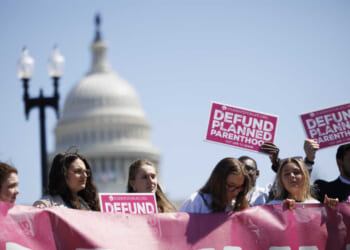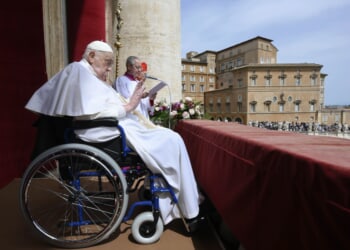On April 7, 2025, Bashar Masri, a Palestinian-American billionaire and long-time member of Harvard University’s Kennedy School Dean’s Council, quietly resigned. His departure came just hours after a federal lawsuit was filed in Washington, D.C., by nearly 200 American plaintiffs — among them survivors and relatives of those murdered in the October 7 Hamas attack on Israel. They allege that Masri and his companies played a direct role in enabling the terror group’s tunnel and rocket infrastructure in Gaza.
If the West still believes in its own institutions, it must defend them. Not with platitudes, but with policies.
The complaint — detailed and damning — accuses Masri’s firms, PADICO and Massar International, of knowingly facilitating Hamas’s military build-up. According to the suit, facilities developed by Masri — including the Gaza Industrial Estate and two luxury hotels — were used to conceal terror tunnels and rocket launch platforms. These developments, in part funded by Western aid, allegedly served as camouflage for the very operations that culminated in the deadliest massacre of Jews since the Holocaust. Over 1,200 people were killed, including more than 40 U.S. citizens.
Masri, a naturalized U.S. citizen, has long been celebrated as a model of Palestinian entrepreneurship. His flagship initiative, Rawabi — a gleaming master-planned city in the West Bank — earned praise from diplomats and business leaders alike. Former British Prime Minister Tony Blair once hailed it as “the future of Palestine.” Masri was lauded in the West as the kind of Palestinian leader the peace process needed: urbane, ambitious, and committed to economic growth.
What now emerges is a deeply unsettling counter-narrative: that behind the façades of progress and statecraft may have been the concealed infrastructure of war.
Masri denies the allegations. His legal team insists he has spent decades promoting peaceful development and economic uplift, not violence. Yet what is not in dispute is that, until last week, he held an advisory role at one of the world’s most prestigious public policy schools. If even a portion of the plaintiffs’ claims are substantiated, then Harvard — and the broader elite academic ecosystem — must contend with the possibility that they conferred prestige and legitimacy on a man allegedly complicit in building the architecture of terrorism.
This is not an isolated scandal. It is the consequence of a culture that has, for years, opened its doors wide to foreign capital while asking few questions about provenance or intent. From 2013 to 2021, more than $13 billion in foreign funds poured into U.S. universities — much of it undocumented, in clear violation of federal disclosure laws.
Qatar alone contributed over $1.1 billion, funneling money to institutions including Georgetown, Cornell, Texas A&M and, yes, Harvard.
These were not charitable donations in the classical sense. They were strategic investments — and they have yielded results. Foreign-funded academic centers, cultural institutes, and research initiatives have altered the ideological climate of campuses across the West. Criticism of Islamist extremism is routinely softened, reframed, or buried entirely. Faculty appointments, course content, and even invited speakers are shaped — subtly or not — by the political sensitivities of these donors.
The Middle East Studies program at Georgetown University, for instance, received tens of millions of dollars from Qatar, which also underwrites the Al Jazeera Media Network. Critics have long argued that the program’s outlook often aligns with Qatari foreign policy narratives, including a tendency to obscure or excuse Islamist movements. Similarly, at Northwestern University’s Qatar campus, questions have been raised about academic freedom, editorial neutrality, and the political expectations placed on faculty.
What began as internationalization has, in many cases, become ideological outsourcing.
The Masri case brings this reality into sharp focus. Harvard did not stumble into scandal; it granted an advisory platform to a man whose business operations, if proven complicit, directly undermined the very democratic norms the university claims to defend.
The consequences of this ecosystem are not theoretical. On October 7, they became brutally real. In the weeks that followed, campuses across America exploded in protest — not against Hamas, but against Israel. At Harvard, Columbia, Penn, and Yale, student groups blamed the victims. Faculty equivocated. Administrators defaulted to ambiguity. But these responses were not spontaneous. They were cultivated — through years of ideological grooming. Higher education’s most recent enthusiasm for the theory of “settler colonialism” seems tailor made for the demonization of the U.S. and Israel, and it is underwritten in no small part by unchecked foreign capital.
Just yesterday, a federal judge approved the deportation of Columbia graduate Mahmoud Khalil, citing his involvement in inflammatory activism and the potential for “foreign policy disruption.” But Khalil is not the cause — he’s the symptom. Masri is closer to the cause.
And Harvard is not alone. Dozens of top-tier universities have become willing partners in this quiet ideological capture. They pocket the cash, boast about their “global partnerships,” and then act surprised when students march under banners glorifying terrorism. The connection is not incidental. It is structural.
What’s needed is not more reflection. It is enforcement. Universities must be compelled to disclose the full extent of their foreign funding — not through voluntary reporting, but as a legal requirement with real teeth. For years, federal law has required the disclosure of foreign gifts exceeding $250,000. Last week, the U.S. House of Representatives passed legislation lowering that threshold to $50,000, with a zero-dollar disclosure requirement for gifts from countries of concern. This is a step in the right direction — but insufficient.
Without enforcement, disclosure is meaningless. Foreign donors from authoritarian regimes or state sponsors of terror must face automatic scrutiny. Academic programmes tied to such regimes must be subject to independent audit. And institutions that fail to comply should be deemed ineligible for federal funding and grants.
Universities Are Not Neutral
The idea that universities can remain neutral while drawing money from regimes that imprison dissidents, execute homosexuals, and finance terrorism is no longer sustainable. Nor should it be.
This is not about paranoia. It is about prudence. When universities allow foreign powers to shape their agendas, the result is not diversity of thought. It is conformity to a worldview that is neither liberal, nor democratic, nor remotely aligned with the values of open society.
If the West still believes in its own institutions, it must defend them. Not with platitudes, but with policies. That begins by drawing a hard line between academic engagement and strategic subversion.
Bashar Masri may never be convicted. But his case has already revealed something essential: that the tunnel was never just under Gaza. It was also running, quietly and deliberately, beneath the institutions we trusted to shape the next generation of leaders.
Now the question is whether we will seal it — or keep digging.
READ MORE from Kevin Cohen:


![NYC Tourist Helicopter Falls into Hudson River, Siemens Executive and Family Among Those Killed [WATCH]](https://www.right2024.com/wp-content/uploads/2025/04/NYC-Tourist-Helicopter-Falls-into-Hudson-River-Siemens-Executive-and-350x250.jpg)






![Red Sox Fan Makes the ‘Catch of the Day’ with Unconventional ‘Glove’ [WATCH]](https://www.right2024.com/wp-content/uploads/2025/04/Red-Sox-Fan-Makes-the-‘Catch-of-the-Day-with-350x250.jpg)
![Green Day’s Cringe Trump Diss Ends in Fire and Evacuation [WATCH]](https://www.right2024.com/wp-content/uploads/2025/04/Green-Days-Cringe-Trump-Diss-Ends-in-Fire-and-Evacuation-350x250.jpg)






